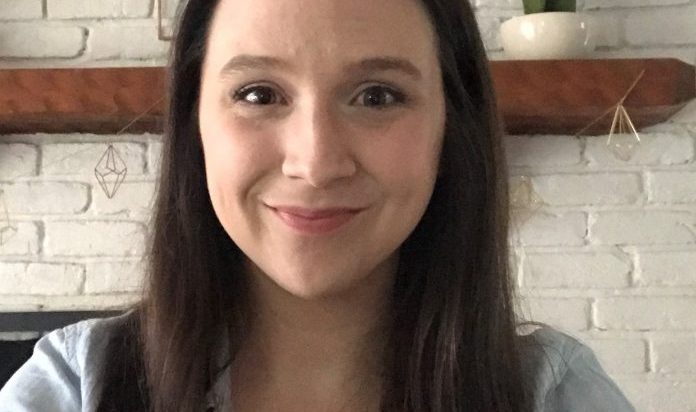A Different Way to Help People: Charlotte Asencio’s Path from Social Worker to Programmer

Students at our Boot Camps come from a diverse array of backgrounds. But when Charlotte Asencio enrolled in The Coding Boot Camp at UNC Charlotte, she was the only student in her class with a background in social work.
“I made the weirdest change of anyone in my cohort,” she laughed. “I went from working with all people to all computers.”
Charlotte soon realized that the leap from social work to coding isn’t so strange after all. Both disciplines allowed her to do something she cares deeply about: helping others.
“Computers are so intertwined with everyone’s lives these days, you can use technology to help people just like you can in social work,” she said. “It’s just a different way of going about it.”
From Guatemala to the district attorney’s office, then back to the classroom
After graduating from college with her degree in social work, Charlotte headed to Guatemala, where she worked with two different nonprofits. Besides teaching English, she also trained volunteers to help children who lived in and around the vast Guatemala City garbage dump.
Despite finding the work rewarding, after two years, she was ready for a change. She headed home to North Carolina, where she took a job at the district attorney’s office, working with crime victims and witnesses. Eventually, however, she realized she wanted more from her career than social work could offer and started looking into coding boot camps.
“I Googled ‘coding boot camp’ and the Trilogy one had the best reviews,” she said.
Why the leap to tech? Charlotte had always enjoyed computers and had taught herself some HTML for fun, so it seemed like a natural fit. She also wanted to find something that gave her greater flexibility than social work did.
“With coding, it’s easier to find a job that lets you travel, work from home, or do something more creative. That was the driving factor behind making the change,” she said.
A challenge she was ready for
Still working full time at the DA’s office, Charlotte made the 90-minute drive to UNC Charlotte three times a week for classes. In addition to learning programming languages, she had to master soft skills like time management.
“It was stressful, but worth it,” she said. “You’re trying to do so much in just a few months that you really have to be clear about setting goals, prioritizing your time, and figuring out what you’re going to do when.”
The biggest challenge, though, was believing in herself and pushing through when it got hard. Luckily, help was always there when she needed it.
“The instructors are amazing,” Charlotte said. “They were so supportive.”
Still, she had to dig deep to find the answers when she ran into problems. And there were problems.
“That’s what programming is: solving problems,” Charlotte said. “There’s never a time when you’ve got it and you’re done. You’re always running up against problems, and you’re the one in charge of finding the solution. The teaching team will help you, but you have to solve it yourself.”
By the end, Charlotte found the problems more exhilarating than stressful. In fact, the constant learning aspect of the boot camp turned out to be her favorite part.
“You’re never bored. When you’re researching a problem, you can read one blog post and find eight different cool things to try,” she said.
Making connections in a new industry
Just two months into her six-month boot camp, a friend told Charlotte about an opening at her husband’s company, Clinical Ink.
“My friends basically forced me to apply. I was terrified, but I worked up the courage—and I got the job,” Charlotte said. “The company was so impressed that I was doing the boot camp. If it hadn’t been for that, I don’t think they would have offered me the position.”
Working as a programmer while still attending boot camp, Charlotte was now fully immersed in coding—and loving every minute of it.
“I was learning on the job, and learning even more at night. It was wonderful,” she said.
Charlotte is thankful that she had connections in the industry, but she’s still focused on building her network. Recently, she attended a women-in-tech conference that turned out to be incredibly fun as well as interesting. She encourages other boot camp grads to do the same.
“It’s so important to make connections when you’re in a new industry where you don’t know anyone,” she said.
Helping people every day
At Clinical Ink, Charlotte’s job is to help create systems that speed up data analytics for clinical trials, so she’s still doing what she loves—helping people.
“There are people waiting on these medicines,” she said. “The faster the data can be analyzed, the faster they can have access to potentially life-saving treatments. So we’re helping people every day.”
Charlotte is thrilled that her work as a programmer truly impacts people’s lives.
“It’s not just data and numbers and code all the time. You have to think about how people will interact with the systems you’re creating,” Charlotte said. “If no one is able to use what you’ve made, it doesn’t matter that you’ve made it. Understanding people really does make a difference.”

 Live Chat
Live Chat